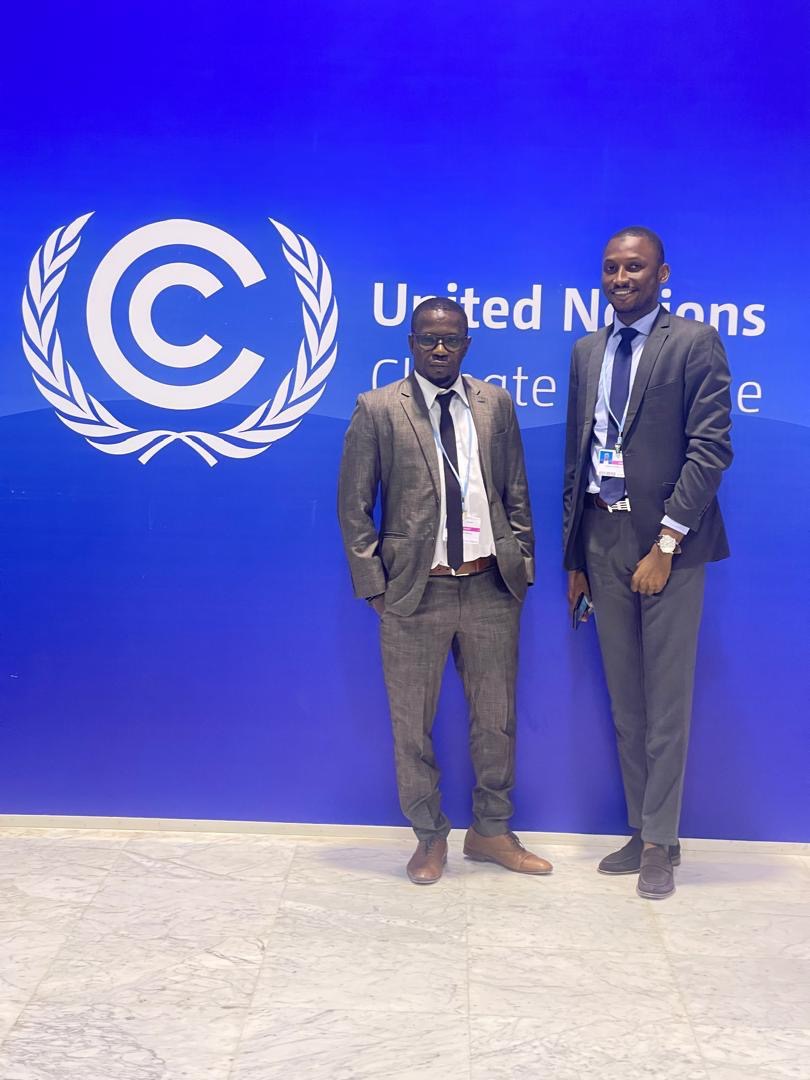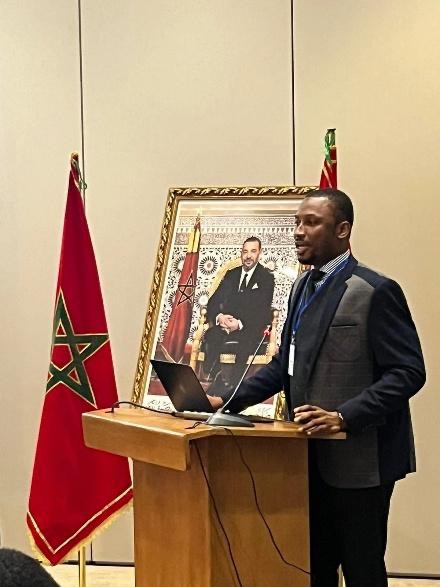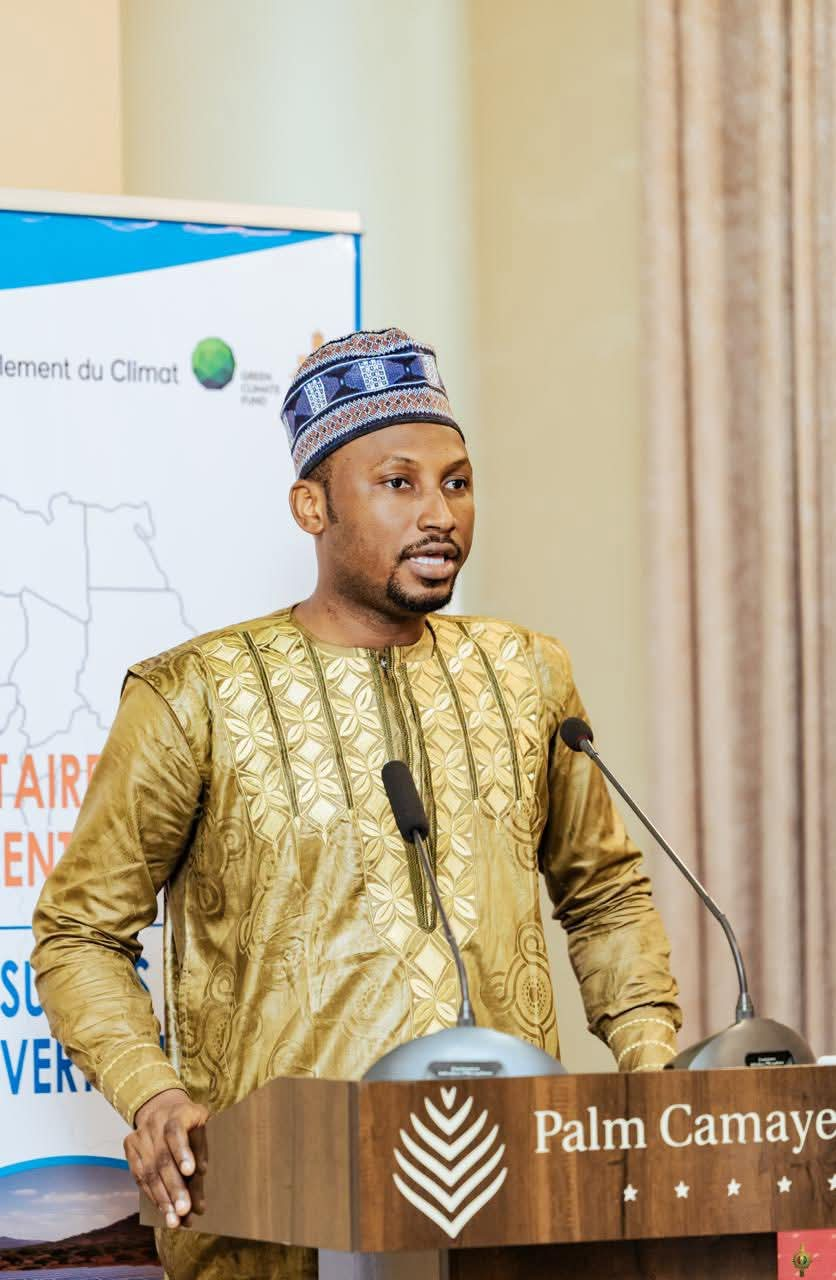In a struggle that calls for the union of forces (those of the strong and those of the weak), no individual is sufficient on their own, just as the absence of any individual is not conducive to the success of the cause. Humanity, in its quest to satisfy its ever-growing vital needs, has ended up creating chaos around itself. Climate change is now a truth that is more than axiomatic. We can no longer deny that the climate is changing. This change is at the root of a great imbalance on Earth, leading to displacement, loss and economic and non-economic damage. Only resilient peoples recover quickly from the pain inflicted on them by nature. Effective resilience has become a luxury that only developed countries can afford. Underdeveloped or developing countries, on the other hand, suffer either in total ignorance or, more often than not, in global silence. From afar, GOD is blamed for responsibilities that should fall to humanity. Like the human body, if one part of the Earth is affected, all other parts will feel it sooner or later. Anticipation, prevention, preservation and protection can all be summed up in a single word: ADAPTATION.
My name is Alpha DJALON, a young man in his thirties from the countries south of the Sahara, mainly from the Republic of Guinea. My mother, a Fulani woman from the arid regions of Fouta-Toro in Senegal, is a source of motivation for me to ensure that Guinea effectively plays its role as the ecological lung and hydrological vessel for the West African sub-region. I understand the definition of scarcity and shortage of natural resources, especially water. I have also experienced the consequences of poor preparation for the unexpected events of nature on several occasions. Nowadays, I am fortunate to be continuously coached, supported, informed and trained on key concepts related to climate change. By joining the New Generation program's group, where I supported the strategy and capacity building, I have not only been able to represent my community within the United Nations Framework Convention on Climate Change system, I have also been the driving force behind the desire to welcome even more young people from vulnerable countries that lack successful programmes for adapting to the changing realities of the climate. Together with these young people, we have become the hope of a world that will achieve climate justice.
The New Generation Program (NGP) is a programme that provides elites and executives who can help the United Nations system function in general, with specific and unparalleled support for their respective countries. Since April 2025, after attending COP29 in Baku, I have joined the United Nations Industrial Development Organisation (UNIDO) as a part-time consultant for nine months. The link between UNIDO and me was strengthened by the New Generation Program. As you know, consultancies are vital in climate finance by providing specialised expertise to help organisations access and deploy financial solutions for climate mitigation and adaptation. Joining the New Generation Programme has helped me build up my confidence to work for such organisations, even though I had only basic skills in public management and a decade of experience working in the environmental field in light of climate change. My consultancy bridges knowledge in climate change globally and specifically in climate finance gaps, assesses climate-related risks, develops innovative financing strategies, ensures regulatory compliance, and connects businesses with investors interested in sustainable projects. By fostering collaboration and offering practical guidance, I now support accelerating Guinea's transition to a low-carbon economy and building resilience to climate change impacts. Attending COPs has also opened up a vast networking opportunity with multiple actors and different sub-regional organisations that would never previously have had the chance to meet me. At the COP27 in Sharm-El-Sheikh, my very first COP, in addition to being a grantee of the Climate Justice Resilience Fund (CJRF), I belonged to the African Loss and Damage Action Network (ALADAN), a rich programme supported by the University of Lund's Centre for Sustainability Studies (LUCSUS). At the following COP28 in Dubai, I was able to join the Africa Clean Power Convening (ACPC), for which I often provide support in West Africa Power Pool (WAPP) programmes on renewable energy and green and sustainable industrialisation. The New Generation Program is vital for the integration and inclusion of young people and women from vulnerable groups and least developed countries (LDCs) in the UNFCCC negotiation system.
What exactly are we doing? It is easy to say that the North is responsible for all the consequences of climate change, as a result of human activities and intensive pollution through excessive industrialisation and the use of fossil fuels, which have long polluted the atmosphere. Nevertheless, the losses and damage associated with the irreversible impacts of climate change will be more costly than effective adaptation. The North and South will inevitably have to support each other to achieve global carbon neutrality. The North, with its considerable resources and enormous financial capacity, must support the South, which has limited local capacity to adapt, in scaling up resilience and sustainability measures in its infrastructure. The South, pointing the finger at the main polluters, expects them to pay for their activities, which are responsible for several losses, including mass loss of human life.
What exactly are we doing? It is easy to say that the North is responsible for all the consequences of climate change, as a result of human activities and intensive pollution through excessive industrialisation and the use of fossil fuels, which have long polluted the atmosphere. Nevertheless, the losses and damage associated with the irreversible impacts of climate change will be more costly than effective adaptation. The North and South will inevitably have to support each other to achieve global carbon neutrality. The North, with its considerable resources and enormous financial capacity, must support the South, which has limited local capacity to adapt, in scaling up resilience and sustainability measures in its infrastructure. The South, pointing the finger at the main polluters, expects them to pay for their activities, which are responsible for several losses, including mass loss of human life.
At COP 30 in Belém (Brazil), I decided to join the negotiations on the topic of “Adaptation”. Why am I following this particular agenda item and why does it matter to me and my country?
What if global goals on adaptation (GGA) need adaptation themselves? Vulnerable communities are not only found in least developed countries (LDCs) but also in developed countries. The difference is that developed countries have the capacity to recover quickly after being affected by the changing effects of climate change. LDCs effectively need similar support. Without a commitment to global resilience factors, LDCs may never succeed in their efforts to combat climate change. Adaptation to climate change is a victim of the crime of being a potential source of real resilience for LDCs. Resilience necessarily means development. And the North would find it unthinkable that, because of a global naivety generated by the desire to accumulate primitive gains, it would lead straight to enriching the South through innovation in the fight against the negative effects of what it (the North) has caused. What if the North only steps up its efforts to mitigate climate change in response to its history of intensive industrialisation, in order to avoid being held accountable for its past role in the climate crisis?
For clear climate justice for LDCs, we must:
1. Refocusing the international agenda on climate change prevention: READAPTATION...
The time has come for the global goal of the Paris Agreement on adaptation to be the subject of a fully-fledged adaptation programme. The international framework convention suffers from a lack of sincere commitment to achieving the collective quantified goal, both old and new. Is this simply an announcement, or is it because adaptation is not a real funding priority for Northern countries? Indeed, developed countries are not providing sufficient funding for climate change adaptation in developing countries for several reasons, including failure to meet financial commitments, the fact that funding often takes the form of unfair loans, and governance issues that favour mitigation over adaptation funding.
2. Encourage even greater compliance with financial commitments:

Developed countries have not fulfilled their international climate aid commitments. Actual funding is often lower than the amounts promised and is not always sufficient to meet the needs of developing countries. This form of funding injustice is due to the fact that a large part of the funding is provided in the form of loans, which is considered unfair by developing countries such as mine. Our countries did not cause the climate crisis, so they should not be forced to go into debt to deal with it.
As Mr Alpha Oumar Kaloga said in one of his recent speeches in Guinea: "COP30 will be judged not by the beauty of the speeches, but by three concrete elements:
- Comprehensive NDCs 3.0, in line with 1.5–2 °C, accompanied by sectoral benchmarks for 2026-2030 and implementation strategies based on the global stocktake.
- Reliable and affordable financing. A quantified pathway to USD 1.3 trillion/year by 2030, incorporating increased subsidies, reduced cost of capital in Africa, portfolio guarantees and direct access, accompanied by readjusted governance of multilateral banks.
- A supplementary, rapid, debt-free fund for loss and damage, aimed at financing dignified relocation, livelihood rehabilitation and community resilience — in Africa and Guinea, starting in 2026.
For Africa, Belém must mark the transition from advocacy diplomacy to climate power diplomacy, capable of influencing financial flows, standards and markets. The credibility of the global climate system is at stake in Belém. If the international community honours its commitments — in terms of ambition, financing and justice — COP30 will be the indispensable turning point we are looking for. Otherwise, it will be just another symbol."
3. Prioritising mitigation over adaptation is a form of lasting distraction:
Most funding prioritises mitigation (reducing emissions) rather than adaptation (managing impacts that are already present). However, the most vulnerable countries need funding to adapt to the consequences of climate change. Mitigation must be a priority in developed countries, with support for low-scale emission management programmes in developing countries. It should be noted that today, the most vulnerable countries are often those that have contributed the least to climate change. They are therefore the most exposed to the devastating effects of climate change, such as sea level rise, droughts and extreme weather events, including slow onset events. Thus, developed countries are not fulfilling their international climate aid commitments if they continue to prioritise mitigation over adaptation.
4. Advocate for a comprehensive increase in community resilience through broad support for adaptation programmes, by:
- Improving livelihoods of individuals and communities,
- Insuring health, food and water security,
- Preserving Infrastructures and the built environment,
- Conserving Ecosystems and assuring good ecosystem services.
5. Prioritise LDC indicators.
The Least developed country (LDC) indicators for the Global Goal on Adaptation (GGA) are specific measures used to assess progress in adapting to climate change. LDCs advocate for robust indicators to track progress in key sectors and hold developed countries accountable. These indicators cover areas such as health, food, water and resilient infrastructure, focusing on both outcomes (such as lives saved) and means of implementation (such as financing). The development of these indicators is an ongoing process within the UNFCCC, which aims to ensure their relevance, applicability and suitability to the needs of vulnerable countries. Key aspects of the LDCs' indicators for the GGA are as follows:
- Sectoral prioritisation: LDCs call for indicators that measure progress across a wide range of sectors critical to adaptation, such as food, water, health, biodiversity and resilient infrastructure.
- Clear robustness and accountability: LDCs advocate for robust indicators that are not afraid to show gaps in support or capacity, thereby ensuring accountability and emphasising concrete results rather than the duration of agreements.
- Requirement for means of implementation: a key requirement is to track the “means of implementation”, which include financial resources, to ensure that adaptation measures can actually be implemented.
- Priority health-related indicators: Specific health indicators are being developed to monitor climate-related health risks and the effectiveness of adaptation, including:
- Essential health service coverage,
- Mental health and psychosocial support following climate events,
- Implementation of early warning systems,
- Capacity building for health personnel.
- Data disaggregation: indicators are designed to be globally applicable, using established methodologies and data that can be disaggregated according to social, economic and geographical criteria.
What are my expectations for COP30 on that agenda item:

My greatest expectation at the end of COP30 is that COP30 will include the intensification of adaptation and adaptation financing to be allocated to LDCs, the strengthening of national climate ambitions (NDCs) by taking into account the losses and damages associated with the negative impacts of climate change, the effective implementation of commitments, and the mobilisation of greater financing. I also remain confident that COP30 will once again be a platform that promotes climate justice, that the phase-out of fossil fuels will be clearly integrated into roadmaps, and that climate governance will be strengthened to bridge the gap between promises and reality. All of this must be accompanied by a new action plan for gender equality and the effective inclusion of indigenous peoples, historically underserved populations, and marginalised
populations living in remote areas with difficult access.



